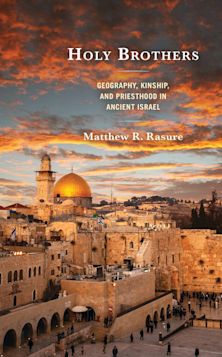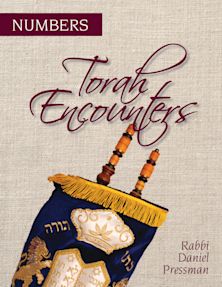- Home
- ACADEMIC
- Biblical Studies
- Biblical Studies - Other
- Semantics and Poetics of the Righteous and the Wicked in the Psalms
Semantics and Poetics of the Righteous and the Wicked in the Psalms
Semantics and Poetics of the Righteous and the Wicked in the Psalms
This product is usually dispatched within 1 week
- Delivery and returns info
-
Free US delivery on orders $35 or over
You must sign in to add this item to your wishlist. Please sign in or create an account
Description
In Semantics and Poetics of the Righteous and the Wicked in the Psalms, Kevin Foth delves into the nuanced roles of the righteous and the wicked and explores their significance beyond conventional moral prototypes. The study argues that the figures of the righteous and the wicked should be considered as part of the conventions of Hebrew psalmody. By leveraging insights from lexical semantics of the terms ??????? and ????? throughout the Hebrew Bible, the study broadens the understanding of these terms in their multifaceted uses within poetic contexts. The analysis further employs narratological theories about character and characterization to elucidate how the contrast between the righteous and wicked functions within 18 individual psalms. By focusing on the specific contexts within psalms and embracing poetic diversity, this study enriches the understanding of how these figures contribute to the literary features and theological messages woven throughout the Book of Psalms.
Table of Contents
Chapter 1: An Approach to Character in Hebrew Psalms
Chapter 2: Semantics of ??????? and ????? in Biblical Hebrew
Chapter 3: The Contrast Between the Righteous and the Wicked as a Literary Device
Chapter 4: The Righteous and the Wicked in Individual Psalms
Conclusion
Product details
| Published | Feb 19 2025 |
|---|---|
| Format | Hardback |
| Edition | 1st |
| Extent | 264 |
| ISBN | 9781666974003 |
| Imprint | Lexington Books |
| Illustrations | 52 Tables |
| Dimensions | 9 x 6 inches |
| Publisher | Bloomsbury Publishing |
About the contributors
Reviews
-
In this volume Kevin Foth provides a fresh presentation of two of the most important contrasting figures in the Hebrew Bible on his way to analyzing their role within the psalms. The study showcases the value of attending to the unique poetic expression of individual compositions rather than importing insights from other contexts. Judicious with past scholarship, Foth challenges past conclusions and charts new directions which will not only impact the reading of the psalms but also the use of the psalms for ethical reflection.
Mark J. Boda, McMaster Divinity College, Hamilton, Ontario, Canada
-
“The Righteous” and “the Wicked” function as main characters in the poetic drama of the Hebrew Psalter. In this book, Kevin Foth draws out the complexities of the roles they play and the way these characters—particularly as they are set against one another—contribute to the meaning of individual psalms. This generative study not only offers deeper understanding of “righteous” and “wicked,” it also provides a model for applying insights about characterization to the interpretation of other aspects of the book of Psalms.
Rebecca Poe Hays, George W. Truett Theological Seminary, Baylor University
-
In this thoroughly engaging work, Kevin Foth has developed a truly landmark study on the “righteous” and the “wicked” and how they function in the Psalms. By employing a distinctly poetics approach matched by close readings of individual psalms, Foth teases out the varied nuances that these conventional “stock characters” carry in Hebrew psalmody. In so doing, he has advanced Psalms research in new and significant ways.
William P. Brown, Columbia Theological Seminary
-
In this clear and insightful work, Kevin Foth casts into new light one of the most important theological concerns in the Psalter—the nature and destiny of those called “righteous” vis-à-vis those labeled “wicked.” By exploring these figures as literary types, he advances our understanding, which has long been hindered by the limits of historical and cultic interpretations. This study is a must read for students of the Psalms and for those who want to understand the nature and importance of the righteous and the wicked within them.
Jerome F. D. Creach, Pittsburgh Theological Seminary
-
Research on the Psalms has often sought to understand them in terms of genre, cult function, or canonical placement. Research on character in Old Testament studies has typically engaged narrative books. We have therefore been waiting for an intervention such as Kevin Foth offers: an exploration of character in the Psalms—in this case, the righteous and the wicked—calibrated to the psalms’ own distinctive poetics. Foth forges a fresh path; his work is meticulous, subtle, and sound.
Collin Cornell, Fuller Seminary

ONLINE RESOURCES
Bloomsbury Collections
This book is available on Bloomsbury Collections where your library has access.


































